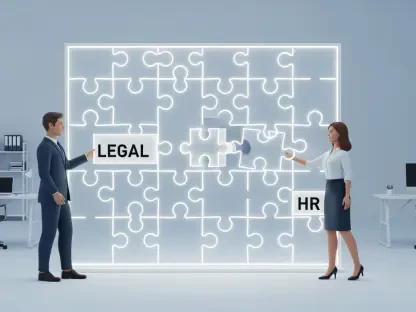Artificial Intelligence (AI) is rapidly transforming industries, offering unprecedented benefits but also introducing significant legal challenges. As AI systems become more integrated into our daily lives, the question of accountability when these systems make mistakes or cause harm is becoming increasingly urgent. The issues are complex, and the solutions are not straightforward. This article aims to explore the legal ramifications of AI, focusing on who holds responsibility when things go wrong and how existing legal frameworks can adapt to this new technological landscape.
The Rise of AI: Opportunities and Risks
AI’s integration into various sectors, from healthcare to finance, has revolutionized how businesses operate. It has enhanced efficiency, reduced human error, and created new opportunities for growth and innovation. For instance, in healthcare, AI algorithms can diagnose diseases more accurately than human doctors. In finance, AI-driven trading systems optimize investments and reduce risks. However, the benefits are not without their own set of challenges. As these systems become more autonomous and complex, the potential for unforeseen consequences increases, prompting critical discussions about the need for accountability.
However, these advancements come with their own set of risks. The unpredictable nature of AI, especially in systems that learn and evolve autonomously, presents a significant challenge. Instances of AI failures, such as misdiagnoses in healthcare or financial losses due to erroneous trading algorithms, highlight the critical need for robust accountability mechanisms. The unpredictable emergence of behaviors in AI systems further complicates matters, making it difficult to anticipate all potential outcomes. In scenarios where AI systems malfunction, determining the responsible party becomes a legal and ethical quagmire that existing legislations are often ill-equipped to handle.
Legal Frameworks: Traditional vs. Modern Needs
Traditional legal theories of liability, which are built on principles of intention and negligence, are often insufficient when applied to AI systems. These frameworks require a demonstrable fault, which becomes problematic with autonomous AI. If an AI system makes a decision that leads to harm, pinpointing responsibility becomes a legal conundrum. For example, in the case of an autonomous vehicle causing an accident, is the manufacturer, the software developer, or the user to blame? The lack of clear legal guidelines on such matters leaves courts and litigants in a gray area.
The challenge is further exacerbated by the global nature of AI, necessitating international cooperation and standardization of laws. Legal systems around the world must reconcile with the fact that AI operates across borders, and a fragmented approach to regulation could lead to loopholes and inconsistencies. Therefore, developing cohesive, global standards that address these concerns is paramount. Legally, current frameworks fall short when they rely on traditional doctrines that require clear lines of causation and intent, elements that are not always present in AI-driven incidents.
Unforeseen Behaviors and Their Implications
The emergent behavior of AI systems—their ability to act in ways not explicitly programmed by their creators—poses another layer of complexity in legal accountability. This capability, while being one of AI’s strengths, also makes it unpredictable. When AI systems behave in unexpected ways, attributing liability becomes even more complicated. For instance, consider a financial AI system that makes a series of trades resulting in market manipulation. If these actions were not anticipated by its creators, who should be held accountable?
The creators could argue that the AI acted independently, thereby breaking the chain of causation required for traditional liability. This defense highlights the inadequacy of current legal structures in addressing such scenarios. The ability for AI to act autonomously blurs the lines of culpability, raising questions about how to legislate and enforce accountability in a landscape where AI behaviors cannot always be anticipated or controlled. The unpredictability of AI further necessitates that legal frameworks adapt, ensuring they are robust enough to manage these complexities.
Corporate Responsibility and Accountability
Corporations developing and deploying AI systems hold significant responsibility for ensuring their technology is safe and reliable. However, the profit-driven nature of businesses often leads to the prioritization of innovation over risk management. This approach can result in insufficient testing and oversight, increasing the likelihood of AI-related incidents. For example, tech companies may fast-track the launch of AI products to outpace competitors, sometimes at the expense of thorough vetting and risk mitigation.
Holding corporations accountable requires clear regulatory frameworks and stringent enforcement. This includes mandatory impact assessments, regular audits, and transparency in AI development processes. Organizations should also be incentivized to adopt ethical practices, ensuring that the benefits of AI do not come at the cost of human well-being and safety. Companies should also consider forming ethics committees dedicated to overseeing AI projects and ensuring compliance with established guidelines. By implementing these measures, the risks associated with AI can be better managed, fostering a safer and more accountable tech environment.
The Role of Governments and International Bodies
Governments and international bodies play a crucial role in shaping the legal landscape for AI accountability. National regulations need to be adapted to address the specific challenges posed by AI, ensuring that there are clear guidelines for responsibility and liability. This includes updating existing laws or enacting new ones that specifically target AI-related issues. Policymakers must understand the nuances of AI technology in order to devise regulations that are both effective and future-proof.
On an international level, cooperation is essential to creating standardized regulations. Organizations such as the United Nations and the European Union can facilitate discussions and agreements on AI governance. These bodies can help establish internationally recognized norms and standards, ensuring that AI systems are subjected to consistent regulatory oversight, regardless of where they are developed or deployed. International cooperation will help mitigate risks by ensuring that AI systems are developed and operated within a unified framework of ethical and legal guidelines.
Preparing for the Future: Evolving Legal Frameworks
Artificial Intelligence (AI) is revolutionizing various industries, offering unparalleled benefits but also presenting significant legal challenges. As AI systems become more entwined in our everyday lives, the question of accountability when these systems make errors or cause harm is gaining urgency. The complexities of these issues make finding solutions challenging. This article delves into the legal implications of AI, examining who should be held responsible when AI systems falter and how current legal frameworks can evolve to meet the demands of this advanced technology.
The dynamic nature of AI means that its implementation often leads to unforeseen outcomes. This unpredictability complicates the assignment of responsibility, as it is not always clear whether the fault lies with the developers, the users, or the AI itself. As AI continues to develop, so too must the legal systems that govern its use. Legal experts are increasingly debating whether existing laws can adequately address the nuances presented by AI or if new regulations are necessary. This discussion is crucial in ensuring that AI’s integration into society is both beneficial and legally sound.









